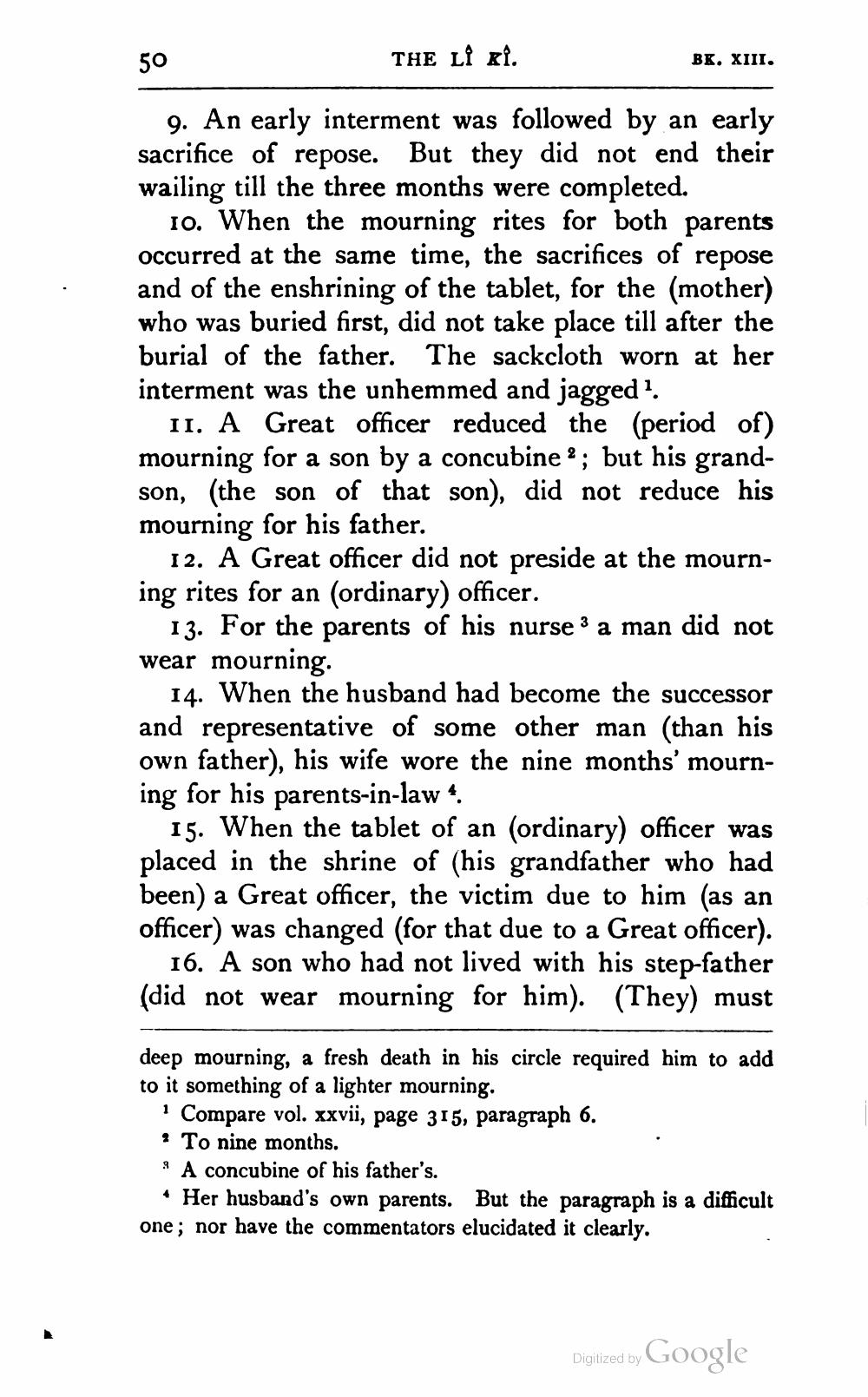________________
THE LÎ ri.
SO
BK. XIII.
9. An early interment was followed by an early sacrifice of repose. But they did not end their wailing till the three months were completed.
10. When the mourning rites for both parents occurred at the same time, the sacrifices of repose and of the enshrining of the tablet, for the (mother) who was buried first, did not take place till after the burial of the father. The sackcloth worn at her interment was the unhemmed and jagged 1.
II. A Great officer reduced the (period of) mourning for a son by a concubine 2 ; but his grandson, (the son of that son), did not reduce his mourning for his father.
12. A Great officer did not preside at the mourning rites for an ordinary) officer.
13. For the parents of his nurse 3 a man did not wear mourning.
14. When the husband had become the successor and representative of some other man (than his own father), his wife wore the nine months' mourning for his parents-in-law 4
15. When the tablet of an (ordinary) officer was placed in the shrine of (his grandfather who had been) a Great officer, the victim due to him (as an officer) was changed (for that due to a Great officer).
16. A son who had not lived with his step-father (did not wear mourning for him). (They) must
deep mourning, a fresh death in his circle required him to add to it something of a lighter mourning.
Compare vol. xxvii, page 315, paragraph 6. ? To nine months. • A concubine of his father's.
* Her husband's own parents. But the paragraph is a difficult one; nor have the commentators elucidated it clearly.
Digitized by Google




